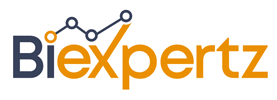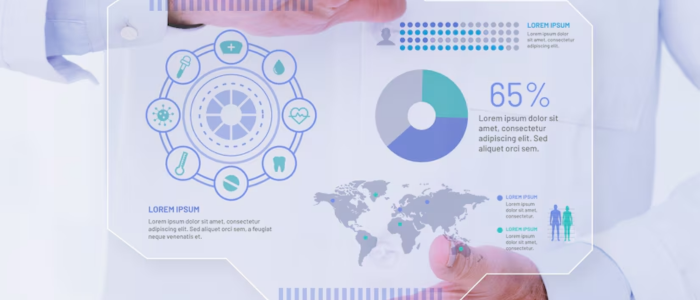Nowadays, businesses and large industries are more weary and calculated towards their entire organization’s data. Before, data would seem like something that needs to be stored; however, business owners have later realized, after having heaps of data lying around all scattered, that their business data is essential for positive and stronger business growth for market dominance. When we look at the healthcare industry, the first thing that comes to mind is the number of patients, the conditions, and the increasing number of recurrent infections.
The healthcare industry needs business intelligence, which is called Healthcare Business Intelligence. This guide will teach you how healthcare business intelligence can help your healthcare organization, hospital, or clinic run and operate more effectively and efficiently. You will discover how healthcare business intelligence provides you with improved patient care and valuable insights.
What is Business Intelligence
Before we discuss healthcare BI, we will first understand the basics of Business Intelligence. Business Intelligence is a general term covering the process of storing, organizing, collecting, and analyzing data from businesses or industries for optimization performances. BI offers a set of in-demand tools that help businesses gain insights from their data. When this data is converted into interpretable and understandable dashboards or charts, the authorities can make wise decisions that convert into relevant, actionable results that promote business growth. These tools include resources for collecting data, such as data mining, storing the data, and securing and analyzing the data into readable and simple results.
Learn more about dashboards: A Guide for Creating Strong Power BI Dashboard Design.
What is Healthcare Business Intelligence
Healthcare Business Intelligence, or Healthcare BI, is a set of tools for the healthcare industry to analyze different kinds of healthcare data. This can be anything from financial data to medical history data, patient demographics, and more. It allows users to store this confidential and sensitive data, centralize it to a warehouse or data lake, and secure it effectively. Additionally, healthcare BI only shares healthcare-related business reports with authorized users.
Pharmacies, clinics, hospitals, doctor’s offices, and other healthcare industries tend to gather large amounts of data, which is self-explanatory. This data can be used to their advantage instead of being stored and kept away by effectively utilizing it to make smarter choices and evaluations for decision-making. Research says that healthcare business intelligence will grow at an annual rate of 13.5% until the year 2030.
Now that you know what healthcare Business Intelligence is, we will examine the healthcare industry’s tools and provide some basic examples to show you potential careers within this field and how data scientists use healthcare data effectively.
Know the difference: Which is Better: Power BI or Excel?
Business Intelligence Relevance in the Healthcare Industry
Now that you know what healthcare BI is, it is also important to know its relevance in the healthcare industry. Some may wonder how BI helps healthcare organizations apart from the data collection, storage, analysis, and security measures it provides. What else does it do? This section will cover this query. Here are a couple of examples we will pick up and give an understanding of how BI applies to different places such as:
- Patient Surveys—It is very common for some healthcare organizations to request patients to fill out a survey, so the number of patients will be large. Of course, this calls for BI help. Surveys can include questions about patient experience, rating healthcare services, feedback on facilities and the hospital environment, rating experience with doctors’ checkups, and more.
- Healthcare Records—A hospital, clinic, or doctor’s office has a significant amount of medical records from various patients. Some patients request healthcare insurance so authorities can check their medical records to see if they fit these criteria.
- Billing—Healthcare industries have a lot of bills. The only way for them to organize them effectively and track their records is through BI.
- Administrative information—Governments and other authorities may direct the hospitals or healthcare industry to keep track of and collect all the data in a certain way for future purposes and protocols.
More to know: What is Power BI for Beginners?
Healthcare Business Intelligence tools help collect a wide range of data from various sources and convert it into data that you can interpret and use to your advantage for business analytical insights. The process begins with data scientists or BI tool users collecting the data, and data which is stored (historical data). Professional Power BI consultants own several tools that help them create interactive dashboards for easier data visualization and understanding.
Once this process is done, you can come up with sound predictions for what could happen in the future in your healthcare industry. You can figure out the pain points of your industry and see where the problem lies or where you are lacking in the healthcare industry. This helps you create leadership within the healthcare industry. As you thoroughly analyze your data through this dashboard, you will make more informed decisions and use this data to further communicate your discoveries with your healthcare seniors and other officials in the healthcare organization.
How Business Intelligence Improves the Healthcare Industry (Examples)
BI tools can be used in several ways to create impactful data-driven decisions in the healthcare industry. When in practice, healthcare Business Intelligence tools can be used in the following areas:
Better Research
When BI tools are incorporated for strategy in the healthcare industry, using machine learning (ML) data scientists can help make faster progress on research by using Demand Forecasting to see how certain drugs, for example, will interact and have what effect on certain patients.
Related read: What is Demand Forecasting in Business Intelligence?
Find Diseases Faster
Scientists can use BI and ML to predict diseases that are likely to spread or occur, such as heart or kidney diseases. Mixing these two will make the research process more sound and easier to complete. For example, BI was heavily used during the COVID-19 breakout to help scientists develop a cure or an immunity booster to prevent its spreading.
Preventing Insurance Fraud
There are people out there who commit this fraud, which is one way BI and Business Analytics can help staff members be more cautious about which patients seek insurance and which do not need it or do not fit that criteria. For example, irregular billings.
Lowering Costs and Increasing Revenue
Healthcare Business Intelligence can be used to understand what issues need fixing within the industry. Instead of wasting too much time and money on trial and error to solve the pain points, healthcare BI can help you in the competitive landscape by determining the exact areas that need fixing. When targeted changes are made, a noticeable improvement will be measured. Since the aim is to increase patient satisfaction, solving those target areas will increase your revenue, showing patients that you have adapted to build patient loyalty and offer more than your competitors.
Preventive Care and Follow Ups
Through healthcare business intelligence, healthcare organizations and hospitals can predict at-risk patients and offer follow-ups to plan interventions if needed.
Better Patient Outcomes
Healthcare data analytics provides doctors or other healthcare providers with tools that can provide the best insights for further improvement, such as identifying at-risk patients for certain illnesses. This way, they can analyze the best treatment options precisely to prevent any negative outcomes.
Improved and Organized Staff
Hospitals and clinics use BI to understand where and when they require higher levels of staff, such as during emergencies. A perfect example of this was during the Pandemic when there was a high demand for healthcare staff members in almost every facility. This helped healthcare industries stay connected and stay equipped with staff and facilities.
Read more: Where BI fits into your Data Strategy? Learn More about BI vs. BA.
How to Get Started with Healthcare Business Intelligence
This section covers the basics of building a career as a healthcare data analyst or data scientist.
When starting a career in healthcare BI, you will need to earn a degree in health data sciences, health information systems, or a similar field. Healthcare data scientists also work in pharmaceutical companies, insurance offices, and other organizations that support the healthcare industries. After you decide on which exact field you want to pursue, certifications will be needed since this is the healthcare industry and being a certified healthcare data scientist requires this, such as the CHDA (Certified Health Data Analyst) or CDIP (Certified Documentation Improvement Practitioner)
Over to You
The healthcare industry is an ever-growing field filled with a mountain of new, old, and current data. Working with this data alone can be a big challenge. This is why it is advisable to hire a prominent industry with Power BI consulting professionals.
BiExpertz is known for its affordable and professional solutions. It provides clients with customized and simplified dashboards where individuals can interpret their data easily without the hassle of sifting through single documents. Contact us today to find out more about our services for targeted fields.
FAQs
What is Business Intelligence in healthcare?
Healthcare BI (Business Intelligence) analyzes and sums different kinds of healthcare data, including financial data, medical history data, and medicine purchase data. It also helps users store their data in a centralized and secure warehouse and easily share it with other authorized users without that data being meddled with.
What is the purpose of clinical analytics or business intelligence solutions?
Clinical analytics is used to improve medical treatment and consultation by analyzing data on patient outcomes, treatment effectiveness, and medication use.
What is the meaning of informatics in healthcare?
Healthcare informatics is a field of study that uses biomedical data, scientific knowledge inquiry, medical information, problem-solving, and sound decision-making to improve human health.
What is healthcare commercial intelligence?
Healthcare commercial intelligence aids in effectively selling into the competitive healthcare market. This untangles the lumps or data from various sources and harmonizes them to create important insights for effective decision-making.

